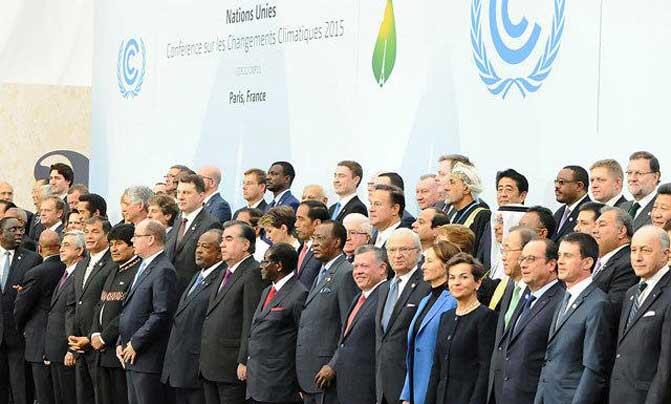An environmentalist praised the UAE’s decision to ratify the Paris agreement on climate change and urged countries in the Middle East to follow suit. On Sunday the UAE became the first Arabian Gulf country to accept the agreement, which aims to combat global warming.
“This is great news because the UAE has now become a positive example to others in the region and farther afield,” said Tanzeed Alam, climate change and energy director at Emirates Wildlife Society – WWF.
“It means the Government is taking this issue seriously and also sees opportunities to take action through more solar power and cleaner vehicles on the roads.”
The Paris agreement on climate change was drawn up last year and is due to take effect in 2020. Countries that have ratified the agreement are committed to limiting the rise in global average temperatures to 1.5°C above pre-industrial levels.
They also agreed on the need for global emissions to peak as soon as possible, recognising that this would take longer for developing countries and to make rapid reductions in temperatures in keeping with the best available science.
Under the agreement, governments will meet every five years to set more ambitious targets as required by science and report on the progress made.
Campaigners aim to get at least 55 countries to ratify the agreement. China and the United States doing so at the weekend brought the percentage of countries to have ratified the agreement to 40 per cent.
“Not taking action will have implications for the UAE, which will experience a 2°C to 3°C increase in temperatures by the middle of this century,” Mr Alam said.
Humidity will also increase by 10 per cent, which will have knock-on effects for people working outdoors and energy consumption through greater use of air conditioning.
“Climate change will happen, so the Paris agreement also urges countries to prepare for this by, for example, building better coastal defences,” he said.
“We are already seeing changes with people in the UAE able to buy solar panels for their homes and the introduction of hybrid-powered cars in the country for the first time.
“At the moment the UAE does not have a federal target in place to reduce emissions like other countries and that should be an important step to take.”
Low oil prices presented an opportunity for Arabian Gulf states to embrace solar power and renewable energy, Mr Alam said. “The cost of solar power has become much cheaper and is a sector that can provide jobs and positively impact the economy,” he said.
“Saudi Arabia is 80 per cent dependent on oil. Imagine if they could become a net producer of solar power and then export that to other countries.”
Source: The National











